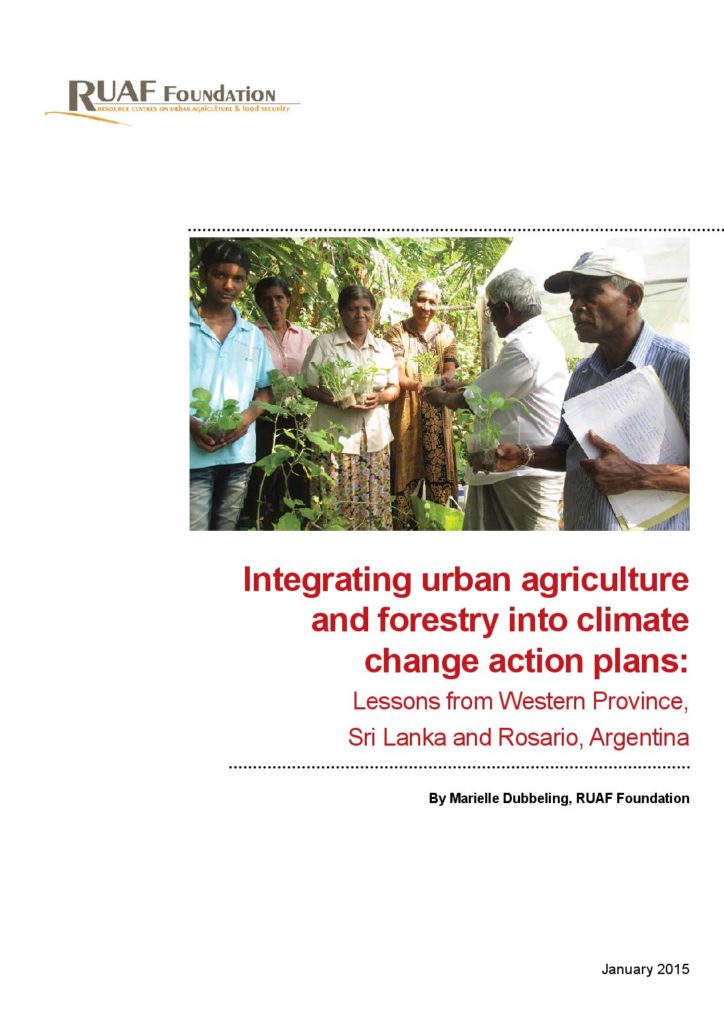Cities need to address the triple challenge of climate change mitigation and adaptation, as well as the provision of basic services, including food, to their vulnerable residents. Urban and peri-urban agriculture and forestry may be suitable strategies to address the triple challenge; they are potential strategies for adaptation and, to a lesser extent, mitigation, that can also bring important development benefits.
Western Province, Sri Lanka is the first provincial government in the country to include urban and peri-urban agriculture and forestry in its climate change adaptation action plan. The Province is promoting the rehabilitation of flood zones through their productive use as a strategy to improve storm water infiltration and mitigate flood risks.
Rosario, Argentina and the Province of Santa Fé are supporting local agriculture to reduce dependency on imports, to lower greenhouse gas emissions and energy requirements for food production, transport and storage, and to improve the food security and livelihoods of their residents.
This background paper describes their programmes and policies in further detail and outlines key lessons learned. A policy brief provides examples from innovative policies and practices from various cities.

